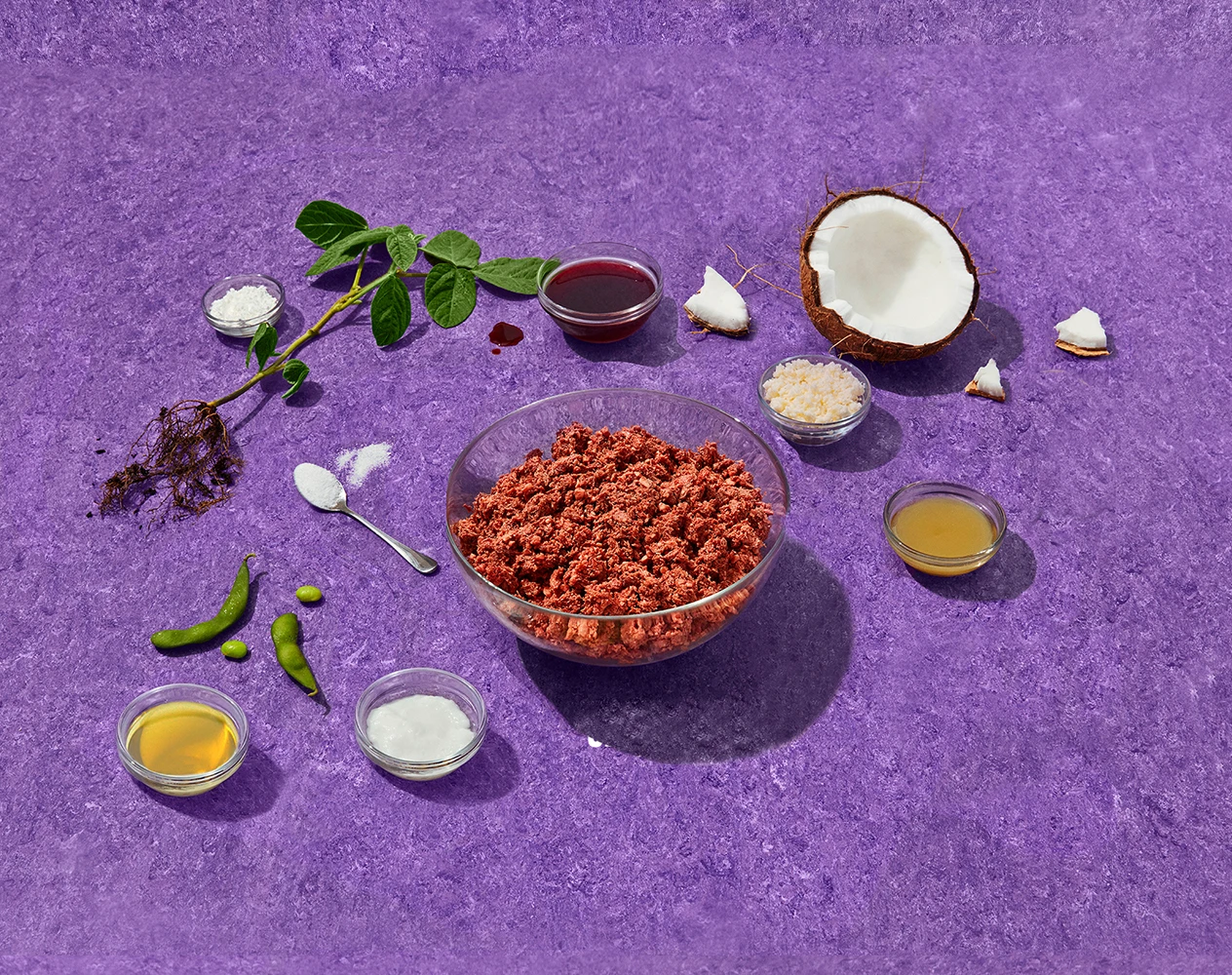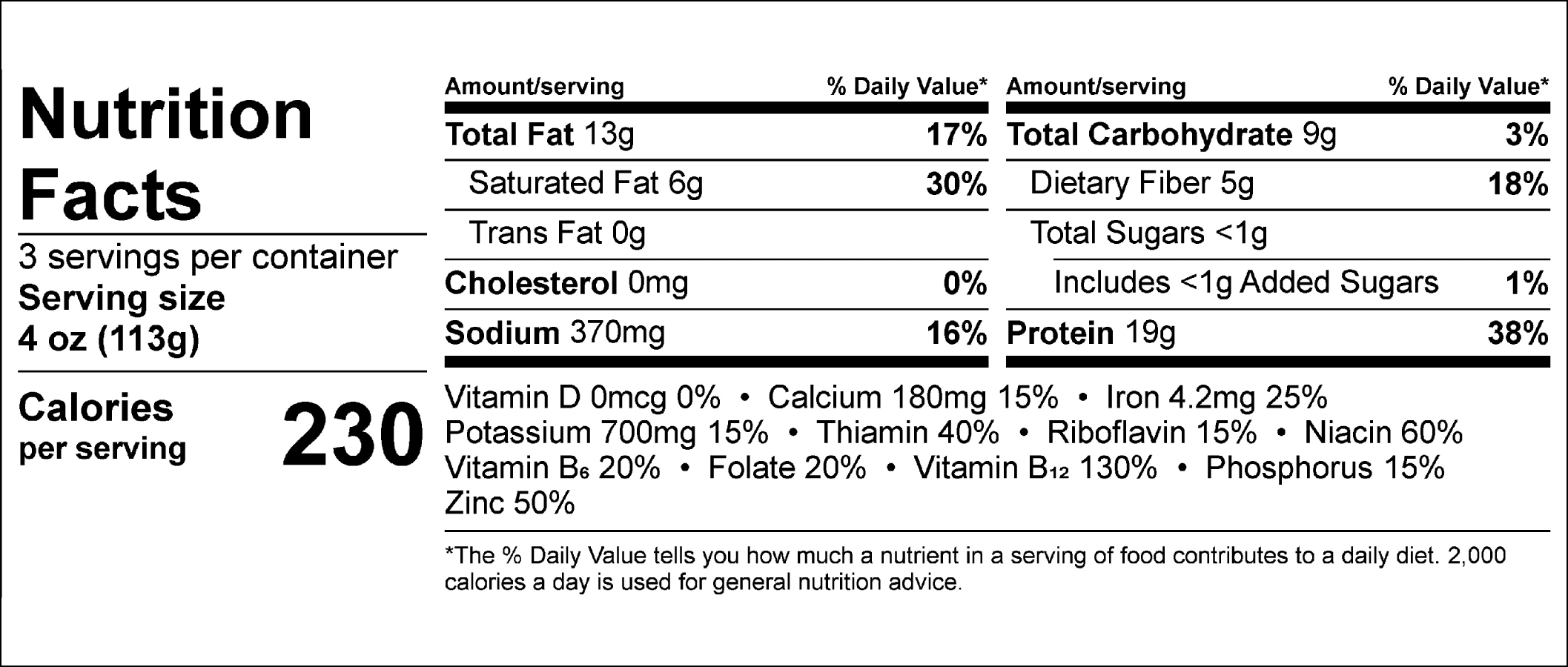IS IMPOSSIBLETM BEEF HEALTHY?
Learn why more consumers are choosing Impossible™ Beef

Updated December 19th, 2023
Maybe you heard about Impossible Beef from a friend. Perhaps you tried it at a restaurant – whether that be your local burger joint or a chain like Burger King, White Castle or Johnny Rockets. But regardless of how you found out about Impossible Beef, you’re not alone in trying it! Millions of consumers are opting for meat from plants for lots of reasons – including health, the environment and animal welfare.
These flexitarians (meat eaters that also eat plant-based foods) love Impossible Beef because its meaty texture satisfies their craving for beef*, while using 96% less land, 92% less water, and 91% less greenhouse gas emissions than beef from a cow. You might be thinking to yourself, ‘That’s great, but is Impossible Beef healthy?’ Read on for everything you need to know about the nutritional content of Impossible Beef, how it compares to ground beef from cows and why meat from plants is key to our planet’s future.
What ingredients are in Impossible Beef?

Health and safety have always been core to our mission. We don't just want to make meat differently – we want to make it better. That's why Impossible Beef is made with high-quality, delicious ingredients:
Protein from soy delivers that meaty bite with 19g protein per 4 oz serving, the same as 80/20 ground beef.
Flavor from heme(opens in a new tab), a molecule found in all living things, that gives meat (and our product) its unmistakably meaty favor.
Sizzle from coconut oil, sunflower oil and binders that give Impossible Beef its juiciness and versatility so you can use it any way you’d use ground beef.
Essential micronutrients like B vitamins and minerals such as iron and calcium that are found in many foods we eat
Nutrition facts for Impossible Beef
When it comes to nutrition, we strive to be equivalent to, or better than, the animal-based products we replace. Every 4 oz serving of Impossible Burger contains:
19g protein – the same as 80/20 ground beef
0mg cholesterol (13g total fat and 6g saturated fat)
0g trans fat
25% the daily value of iron
A good source of vitamins and minerals like iron, calcium, potassium, and B vitamins
No animal hormones or antibiotics

Full ingredient list: Water, Soy Protein Concentrate, Sunflower Oil, Coconut Oil, Natural Flavors, 2% Or Less Of: Methylcellulose, Cultured Dextrose, Food Starch Modified, Yeast Extract, Soy Leghemoglobin, Salt, Mixed Tocopherols (Antioxidant), L-tryptophan, Soy Protein Isolate, Vitamins and Minerals: Zinc Gluconate, Niacin, Thiamine Hydrochloride (Vitamin B1), Pyridoxine Hydrochloride (Vitamin B6), Riboflavin (Vitamin B2), Vitamin B12
Impossible Beef Compared to 80/20 Beef
Both Impossible Beef and 80/20 beef are excellent sources of protein and plentiful sources of essential nutrients, vitamins and minerals.
However, there are a few key differences. Check out Impossible Beef vs 80/20 beef in a 4 oz serving:
Total Fat: 13g vs 23g
Saturated Fat: 6g vs 8g
Cholesterol: 0mg vs 80mg
Fiber: Good source of fiber vs very little fiber
Iron: 1.5X more than 80/20 beef
Calcium: 8X more than 80/20 beef
Sodium: 370mg vs 75mg
Environmental impact: Impossible Beef uses 96% less land, 92% less water, and 91% less greenhouse gas emissions than beef
Finally, Impossible Beef contains none of the animal hormones, animal antibiotics, or highly processed lean finely textured beef associated with animal ground beef, which is good news for all of us! There is more sodium in Impossible Beef, but while raw meat from animals is naturally low in sodium, it is almost always prepared with added salt for taste.
Soy Protein and Impossible Beef
The major source of protein in Impossible Beef is soy protein concentrate, sourced from American farms**. Soy protein is an excellent source of high-quality plant protein that provides comparable nutritional value to animal protein and is rich in fiber, iron and B vitamins.

Soy-derived products are used extensively in the food industry, helping to improve moisture retention and flavoring in everything from bread to tomato soup. Soy protein is also found in cereals, nutrition bars, and plant-based meats like the Impossible Beef. While the scientific consensus supports the health benefits of soy, concerns about its safety have come up that have zero or little factual basis. Check out our blog to learn why we use soy in Impossible Beef.(opens in a new tab)
Is Impossible Beef a processed food?
Yes, but just about everything we eat is prepared through a process – a combination of nature and science. By definition, processing food does not make it any less healthy(opens in a new tab). Quite simply, processing food refers to any change from its raw, natural state by heating, pasteurizing, cutting, etc., which includes the majority of food items you find in a grocery store – for example: cheese, bread, breakfast cereal, and olive oil. Furthermore, processing can actually be used to improve the nutritional profile of food products(opens in a new tab) – including by adding essential vitamins and minerals, as we do with Impossible Beef and other Impossible products.
The reality is that nearly every food we eat, whether prepared by a chef at a “farm to table” restaurant or in our own homes, involves processing, or combining a select set of carefully chosen ingredients and processing them through dehydration, grinding, fermentation, blending or cooking. So there isn’t anything inherently bad or wrong with processed food. In fact, a recent study sponsored by the World Health Organization found that higher consumption of plant-based alternatives, like meat-from-plants and plant-based dairy products, is not associated with increased risk for developing multiple chronic health conditions (source(opens in a new tab)). By contrast, the study found that higher consumption of processed animal meat products is associated with these health risks.

It’s because of these processing methods that we’ve been able to develop a plant-based beef that compares favorably against the animal in terms of taste, nutritional profile, and overall sensory experience. Plus, Impossible Beef can become even more nutritious and delicious over time – something the animal cannot naturally achieve.
Conclusions
We hope this article cleared up any questions you have about Impossible Beef. Our goal as a company is to create the most delicious meat from plants for people who love eating meat. Our products aren’t made with kale or quinoa, because our mission isn’t to get consumers to eat more salads – it’s to get them to eat less animal meat.
That’s why we work tirelessly to create uncompromisingly delicious, nutritious, safe and affordable products for all people: flexitarians, carnivores and everyone in between. Together, we’re transforming the global food system and "Making Meat History." Will you join us?
*In a home usage study, 76% of 254 US consumers said our product satisfied their beef cravings as well as or better than ground beef from cows.
**99% of the soy used in Impossible Beef is sourced from US farms